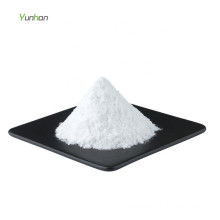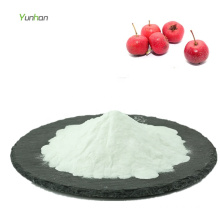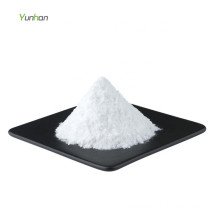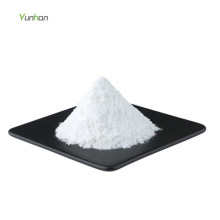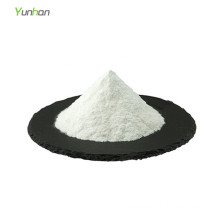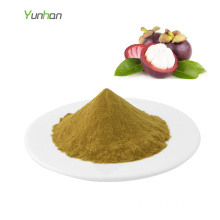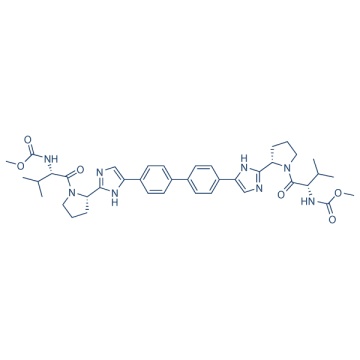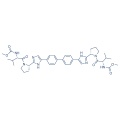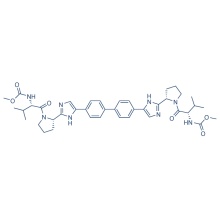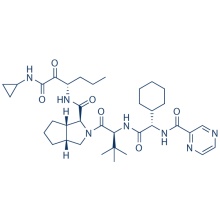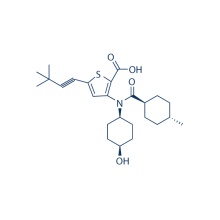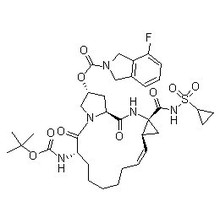Daclatasvir (BMS-790052) 1009119-64-5
Product Description
.cp_wz table {border-top: 1px solid #ccc;border-left:1px solid #ccc; } .cp_wz table td{border-right: 1px solid #ccc; border-bottom: 1px solid #ccc; padding: 5px 0px 0px 5px;} .cp_wz table th {border-right: 1px solid #ccc;border-bottom: 1px solid #ccc; padding: 5px 0px 0px 5px;}
Molecular Weight:
738.88 Daclatasvir (BMS-790052) is a highly selective inhibitor of HCV NS5A with EC50 of 9-50 pM, for a broad range of HCV replicon genotypes and the JFH-1 genotype 2a infectious virus in cell culture. Phase 3.
Biological Activity
BMS-790052 is one of the most potent Inhibitors of HCV replication
reported so far. The mean EC50 valuses of BMS-790052 are 50 and 9 pM for
HCV genotype 1a and 1b replicons, respectively. BMS-790052 displays a
therapeutic index (CC50/EC50) of at least 105 and is inactive
towards a panel of 10 RNA and DNA viruses, with EC50 higher than 10 μM.
This confirms BMS-790052's specificity for HCV.
In Huh7
cells harboring the HCV genotype 1b replicons, BMS-790052 blocks both
transient and stable HCV genome replication, with EC50 values raging
from 1-15 pM. BMS-790052 (100 pM or 1 nM) has been shown to alter the
subcellular localization and biochemical fractionation of NS5A. BMS-790052 inhibits hybrid replicons containing HCV genotype-4 NS5A
genes with EC50 of 7-13 pM. Residue 30 of NS5A is an important site for
BMS-790052-mediated resistance in the hybrid replicons.
FRET assay for HCV NS5A inhibitors
The peptide (Ac-Asp-Glu-Asp [EDANS]-Glu-Glu-Abu-[COO] Ala-Ser-Lys
[DABCYL]-NH2) contains a fluorescence donor {EDANS,
5-[(2-aminoethyl)amino]naphthalene-1-sulfonic acid} near one end of the
peptide and an acceptor {DABCYL, 4-[(4-dimethylamino)phenyl]azo)benzoic
acid} near the other end.
Intermolecular resonance energy transfer
between the donor and the acceptor quenches the fluorescence of the
peptide, but as the NS3 protease cleaves the peptide, the products are
released from resonance energy transfer quenching. The fluorescence of
the donor increases over time as more substrate is cleaved by the NS3
protease.
The assay reagent is: 5× luciferase cell culture lysis reagent
diluted to 1× with dH2O, NaCl (150 mM), the FRET peptide (20 μM). HCV-Huh-7 cells are placed in a 96-well plate, and allowed to attach overnight (1×104 cells per well). The next day, BMS-790052 is added to the wells and the
plate is incubated for 72 hours. The plate is then rinsed with PBS and
used for the FRET assay by the addition of 30 μL of the FRET peptide
assay reagent (described above) per well. Signals are obtained using the
Cytofluor 4000 instrument, which has been set to 340 nm
(excitation)/490 nm (emission) automatic mode, for 20 cycles or less,
with the plate being read in the kinetic mode. Following FRET, 40 μL of
luciferase substrate is added to each well and the luciferase is
measured.
Method
BMS-790052 is added to 96-well plates containing HCV replicon cells
seeded approximately 12 hours before in 200 µL media.The cell plates are
tested for replication activity and cytotoxicity after 72 hours of
incubation. Cytotoxicity is measured with CellTiter-Blue, after which
the media and dye are removed, plates are inverted and the remaining
liquid is blotted with paper towels.
Replication activity of the HCV
genotype 1a cell lines is quantified using Renilla luciferase. 1×
Renilla luciferase lysis buffer (30 µL) is added to each well and plates
are incubated with gentle shaking for 15 min. Renilla luciferase
substrate (40 µL) is then added and the signals are detected using a Top
Count luminometer set for light emission quantification.
One hundred
per cent activity is calculated for each cell line for the DMSO-only
wells; percentage activity is calculated for each concentration of the
inhibitor by dividing the average value for wells containing compound by
the average value for wells containing DMSO.
Contact us if you need more details on 1009119-64-5. We are ready to answer your questions on packaging, logistics, certification or any Other aspects about Daclatasvir 1009119-64-5、BMS-790052 1009119-64-5. If these products fail to match your need, please contact us and we would like to provide relevant information.
Molecular Weight:
738.88 Daclatasvir (BMS-790052) is a highly selective inhibitor of HCV NS5A with EC50 of 9-50 pM, for a broad range of HCV replicon genotypes and the JFH-1 genotype 2a infectious virus in cell culture. Phase 3.
Biological Activity
BMS-790052 is one of the most potent Inhibitors of HCV replication
reported so far. The mean EC50 valuses of BMS-790052 are 50 and 9 pM for
HCV genotype 1a and 1b replicons, respectively. BMS-790052 displays a
therapeutic index (CC50/EC50) of at least 105 and is inactive
towards a panel of 10 RNA and DNA viruses, with EC50 higher than 10 μM.
This confirms BMS-790052's specificity for HCV.
In Huh7
cells harboring the HCV genotype 1b replicons, BMS-790052 blocks both
transient and stable HCV genome replication, with EC50 values raging
from 1-15 pM. BMS-790052 (100 pM or 1 nM) has been shown to alter the
subcellular localization and biochemical fractionation of NS5A. BMS-790052 inhibits hybrid replicons containing HCV genotype-4 NS5A
genes with EC50 of 7-13 pM. Residue 30 of NS5A is an important site for
BMS-790052-mediated resistance in the hybrid replicons.
FRET assay for HCV NS5A inhibitors
The peptide (Ac-Asp-Glu-Asp [EDANS]-Glu-Glu-Abu-[COO] Ala-Ser-Lys
[DABCYL]-NH2) contains a fluorescence donor {EDANS,
5-[(2-aminoethyl)amino]naphthalene-1-sulfonic acid} near one end of the
peptide and an acceptor {DABCYL, 4-[(4-dimethylamino)phenyl]azo)benzoic
acid} near the other end.
Intermolecular resonance energy transfer
between the donor and the acceptor quenches the fluorescence of the
peptide, but as the NS3 protease cleaves the peptide, the products are
released from resonance energy transfer quenching. The fluorescence of
the donor increases over time as more substrate is cleaved by the NS3
protease.
The assay reagent is: 5× luciferase cell culture lysis reagent
diluted to 1× with dH2O, NaCl (150 mM), the FRET peptide (20 μM). HCV-Huh-7 cells are placed in a 96-well plate, and allowed to attach overnight (1×104 cells per well). The next day, BMS-790052 is added to the wells and the
plate is incubated for 72 hours. The plate is then rinsed with PBS and
used for the FRET assay by the addition of 30 μL of the FRET peptide
assay reagent (described above) per well. Signals are obtained using the
Cytofluor 4000 instrument, which has been set to 340 nm
(excitation)/490 nm (emission) automatic mode, for 20 cycles or less,
with the plate being read in the kinetic mode. Following FRET, 40 μL of
luciferase substrate is added to each well and the luciferase is
measured.
Method
BMS-790052 is added to 96-well plates containing HCV replicon cells
seeded approximately 12 hours before in 200 µL media.The cell plates are
tested for replication activity and cytotoxicity after 72 hours of
incubation. Cytotoxicity is measured with CellTiter-Blue, after which
the media and dye are removed, plates are inverted and the remaining
liquid is blotted with paper towels.
Replication activity of the HCV
genotype 1a cell lines is quantified using Renilla luciferase. 1×
Renilla luciferase lysis buffer (30 µL) is added to each well and plates
are incubated with gentle shaking for 15 min. Renilla luciferase
substrate (40 µL) is then added and the signals are detected using a Top
Count luminometer set for light emission quantification.
One hundred
per cent activity is calculated for each cell line for the DMSO-only
wells; percentage activity is calculated for each concentration of the
inhibitor by dividing the average value for wells containing compound by
the average value for wells containing DMSO.
Contact us if you need more details on 1009119-64-5. We are ready to answer your questions on packaging, logistics, certification or any Other aspects about Daclatasvir 1009119-64-5、BMS-790052 1009119-64-5. If these products fail to match your need, please contact us and we would like to provide relevant information.
Product Categories : Proteases > HCV Protease Inhibitor
Other Products
Hot Products
Astragaloside AChlortetracycline HCl 64-72-2Paclitaxel 33069-62-4Dexamethasone Acetate 1177-87-3Dinaciclib (SCH727965) 779353-01-4CHIR-124 405168-58-3Ro3280 1062243-51-9TAME 901-47-3CCG-1423 285986-88-110058-F4 403811-55-2Dabigatran (BIBR 953) 211914-51-1H 89 2HCl 130964-39-5T0901317 293754-55-9Aprepitant 170729-80-3Turofexorate Isopropyl (XL335) 629664-81-9BMS-378806 357263-13-9


